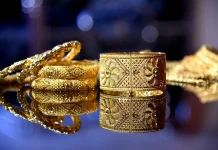President Yoon Suk-yeol cannot leave the country as an investigation opens into whether he led a rebellion last week when he briefly imposed martial law.
The Ministry of Justice banned South Korean President Yoon Suk-yeol to leave the country today Monday as officials investigate whether his brief declaration of martial law last week amounted to leading a rebellion.
The Justice Ministry approved the travel ban on Monday, and earlier, Oh Dong-won, the prosecutor who heads the office investigating high-level officials, told lawmakers he was seeking to impose the ban as they conduct search and seizure operations targeting officials involved in the martial law order.
Can the Korean president be arrested?
No sitting president in South Korea has been arrested. A president can be arrested or impeached while in office if he commits rebellion or treason, according to the newspaper. New York Times.
The investigation and travel ban are part of the escalating fallout from Yoon Suk-yeol’s extraordinary move last Tuesday that plunged the country into a leadership vacuum and sparked widespread protests calling for his ouster. Opposition lawmakers failed on Saturday to impeach Yoon Suk-yeol, prolonging uncertainty over who will take over the country’s leadership.
What is the position of the South Korean army leadership?
South Korea’s Defense Ministry said Monday at a regular press conference that the country’s military command remains in the hands of the president.
Opposition lawmakers have accused Yoon Suk-yeol and officials including his former defense minister, Kim Yong-hyun, of orchestrating a rebellion when they sent armed soldiers into the National Assembly in an attempt to seize the legislature after martial law was declared.
South Korea is facing growing political uncertainty, with the chairman of the ruling party Yoon Suk-yeol saying over the weekend that the president had been removed from his duties. Opposition groups said Han Dong-hoon, chairman of Yoon Suk-yeol’s People Power Party, had no legal basis to remove Yoon Suk-yeol and accused him of seeking to seize power.
Paralysis in South Korea
The constitutional crisis appears to have paralyzed the country’s governance at a time when it faces a host of political challenges abroad and at home, and has raised questions about the health of the country’s democracy.
The opposition has described President Yoon Suk-yeol as the mastermind of a rebellion plot by sending troops to parliament. If convicted, the rebel leader could face the death penalty or life in prison.
The travel ban order issued by the Ministry of Justice came as a defection emerged within the ranks of the army, which stormed the Legislative Council during the few hours in which martial law was declared.
Colonel Kim Hyun-tae, who led the special forces unit sent to the National Assembly, held a news conference on Monday and told reporters that his troops were victims exploited by the defense minister.
Colonel Kim said he had received orders to forcibly remove the lawmakers from the assembly hall. His commanders appeared to be relaying orders from the defense minister, who said troops needed to prevent the 150 lawmakers — the minimum number needed to lift martial law — from gathering in the chamber, he said.
Kim, the former defense minister, was detained on Sunday for questioning by prosecutors and is banned from leaving the country




